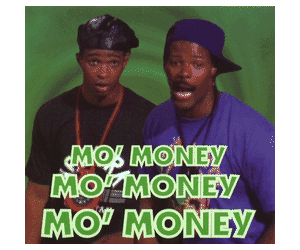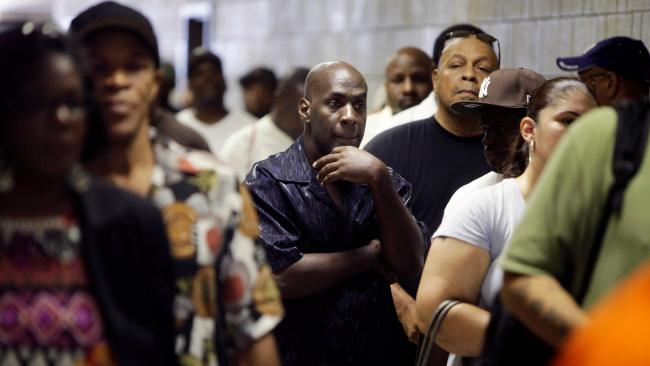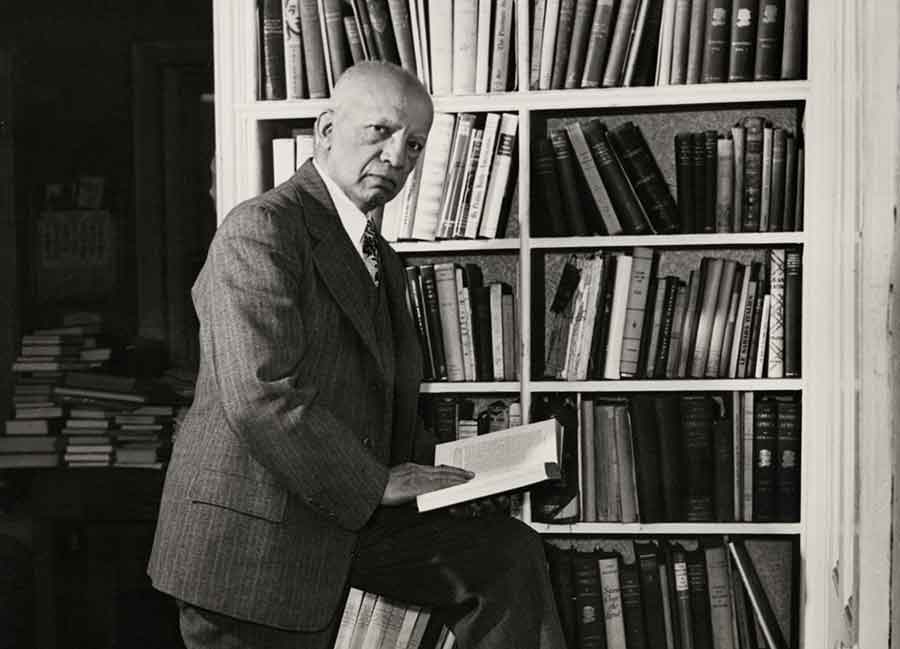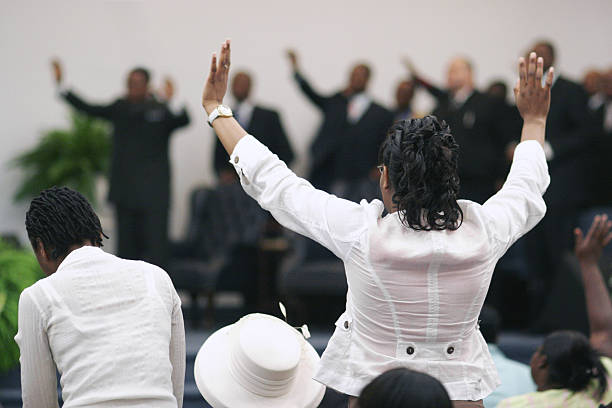(ThyBlackMan.com) Remember that movie with the Wayans Brothers? After stealing some credit cards, Damon’s character, Johnny Stewart, had everything he ever thought he wanted. He spent a lot of money on “things” and still found himself with more than enough cash to do whatever he wanted. I am also reminded of another movie back in the 1980’s, Wall Street, that featured the infamous Gordon Gekko whose mantra was “Greed is good.” When King Solomon wrote, “Money answereth all things,” I don’t think he had Stewart and Gekko in mind.
To expand on that point, the Pope and President Obama will be kickin’ it in March to discuss the issue of economic inequality, which is graphically described by the following three points cited in an Oxfam Briefing Paper:
“The wealth of the richest one percent in the world amounts to $110 trillion. That’s 65 times the total wealth of the bottom half of the world’s population;”
“The bottom half of the world’s population [3.5 billion people] owns the same as the richest 85 people in the world;”
“In the US, the wealthiest one percent captured 95 percent of post-financial crisis growth since 2009, while the bottom 90 percent became poorer.”
Do I have your attention? It is definitely too large a number for me to wrap my brain around, but I do know that $110 trillion dispersed among just 85 families is a whole lot of jack! That makes Gordon Gekko and all of his friends look like paupers, and Johnny Stewart isn’t even in the game. What does this mean to Black folks in the United States? And let’s not even talk about the other countries.
Last week’s column was titled, “The revolution must be financed,” which pointed out that everything we say we want and need to do begins and/or ends with someone writing a check. Juxtapose that fact against the Oxfam report and marinate for a while on our relative economic position in this country.
country.
During the housing collapse Black people lost an estimated $1 trillion in wealth, more than any other group. We were already way behind before the recession; where do you think we are now? What is our children’s economic position? What does the future hold for Black Americans, collectively, especially since we are a microcosm of the world’s wealth concentration model?
That’s right; we have the same relative situation going on with Black money. A small percentage of Blacks holds a large percentage of all Black wealth. You know the most popular ones, from Oprah and Bob Johnson on down to the entertainers and athletes, but there are other business owners whom many of us have never heard of who hold billions as well. This not an effort to make them out to be culprits; this is merely about facts, and then what if anything you are willing to do to help change your and our situation.
Now let’s get one thing straight, those 85 families are not going to come to our neighborhoods and drop bags of money from helicopters, and the richest Black folks are not going to do that either. As a matter of fact, some of them are too busy being Johnny Stewart (Gotta have that bling). So once again the call goes out to our people to look at the facts and get with the program. Economic inequality will always be with us; therefore, we must not waste our time and resources trying to reach “equality;” we simply need to spend as much time raising our individual and collective wealth as we spend trying to have an impact on politics.
It is now estimated that Black people in the U.S. have exceeded $1 trillion in annual income, which only means something positive to those on the receiving end of that money. Income vs. wealth? No brainer, right? Yes, it takes some sort of income to create wealth, but it will also take good stewardship and “common cents” among our people to reach the lofty heights of economic stability.
Look at economic indicators across the board and you will find Black folks at the bottom of every category. Unemployment, business growth (not start-ups), Black owned firms with employees, average annual sales revenue, poverty, health, education, and a lack of structured economic empowerment initiatives are challenges to our wellbeing and future prosperity and, if not changed, will prove to be our demise. And they say our economy is doing much better, that it’s growing. For whom?
Our President subscribes to the Reagan model of economics that says, “A rising tide lifts all boats.” I say, if you have no boat a rising tide can also drown you. Blacks need to get mo’ money, buy some boats, and get in on this rising tide of economic prosperity.
Written By James E. Clingman
Official website; http://www.blackonomics.com/

















To Julie…You my dear, GET IT. Dr.Claude Anderson and many more, along with this author James E. Clingman also GET IT. What the problem is, all knowledge does not reside in one persons head and our scholars do not truly respect one another’s contribution. Everybody wants to be king. We could use Tulsa, OK’s Black Wall Street as an example of what can achieved.
Julie,
I’m sure the book and videos you suggested are great examples. I thank you for the recommendations.
You said something that I read online: “In the last speech that MLK gave in Memphis before he was killed, he said that we should remove our money from mainstream banks and put in our own banks.” But years before, the seed had been planted in the minds of blacks to integrate with whites. Martin and other civil rights activists led millions of black people on marches, boycotts, and protests for the purpose of intergration. By the time Martin was killed, his teachings couldn’t be undone. The seed had been planted and it grew. Up till this very day, black people are feeling the not-so-good effects of the civil rights movement.
I can’t remember the year, but a black-owned bank in New York closed down because of a 10 million dollare deficit. Not ONE sports figure, entertainer, or civil rights activist made a major deposit nor did any of them hold a rally or telethon to help raise the money to keep this bank in business. If 5 wealthy stars deposited 2 million dollars, that bank would’ve remained open. But black people aren’t conditioned to take care of one another. Looking out and having each other’s back hasn’t been on our priority list since I don’t know when.
With all due respect, I’m not sure what you mean by “outsmarting the mainstream.” I learn so much of what I don’t/didn’t know from so many people. If I was smarter, I wouldn’t have learn anything from them.
To Toomanygrandkids and Nicholas
You are right Nicholas, the only business model that we want to emulate is related to the entertainment business. We do not understand our reality. The first millionnaires we had decades ago were not athletes, actors or singers but business people. When our people were lynched most of them were entrepreneurs not people who were after white women. This is what the establishment wanted us and still wants us to believe to trick us. In the last speech that Dr. MLK gave in Memphis before he was killed, he said that we should remove our money from mainstream banks and put it in our banks.
To Tomanygrandkids and others, I strongly recommend to read Powernomics by Dr. Claud Anderson who proposes a Black Marshall/New Deal plan. You can also watch his YouTube videos. He is among the best intellectuals out there who understand thoroughly how capitalism works and how we can outsmart the mainstream.
nities? Black people are saying that Obama has let us down because he hasn’t created jobs for black people. But it’s not his job to find jobs for us. It’s really our job to create employment for each other.
I should also mention that I read an older article describing Martin Luther King’s children as greedy. It stated that they had earned $170 million off their father’s legacy. Them earning that much money is what it is. But what I noticed about them and other wealthy blacks is that not much of their money really doesn’t benefit black communities. At least not a significant amount. Seems to me that wealthy folks wanna make more money for themselves to live in the lap of luxury while small-time businesses struggle to make ends meet. Instead of supporting black their own, wealthy black people will donate millions to white organizations. Like United Way, the Red Cross, etc. Not saying these organizations don’t help people because they do. But there’s been reports of theft within these organizations. Or they’ll do everything in their power to keep it hush-hush. All the while, more black dollars are going to these organizations and not being spent/given/invested in black communities.
Everybody knows that Beyonce is super rich. She’s earned big bucks working in show business. In a True Hollywood story, it was revealed that she’d donated a million, maybe more, dollars to her church. It had suffered some type of damage. But how much of her money goes directly to residents in black neighborhoods? Something as grocery and shoe stores, dollar stores, and department stores would definitly benefit any black neighborhood. I know that she and her mother have that boutique House of Derron(sp) but that’s not beneficial to the community at large. Many residents living in black neighborhoods can’t afford to shop there. It’s not practical.
Guess what I’m saying is that if I had a million dollars to give a church then I must have a million more to establish businesses in or near black neighborhoods. It’s been revealed that there’s more shady goings-on within black churches than the streets. So why not offer residents in black neighborhoods employment opportu
Black folks at the bottom of every economic category. Not withstanding our $1 Trillion of yearly income we spend into the American economy. I non’t claim to be an economic scholar, so my solution will not resonate with the Johnny Stewart’s (Gotta have that Bling)among us. We seem to focus on wealth, I mean the celebrity kind like Oprah and Jay Z kind of wealth. The solution lies in practising good stewardship, “common cents”, buy black and educate our young people.
I really do enjoy reading your articles. At least the ones I’ve read so far. You seem like a sensible man who puts things in perpective very well. Maybe we should make you president.
The million dollar question is: How do we improve the economic base that I believe was destroyed during the civil rights era?